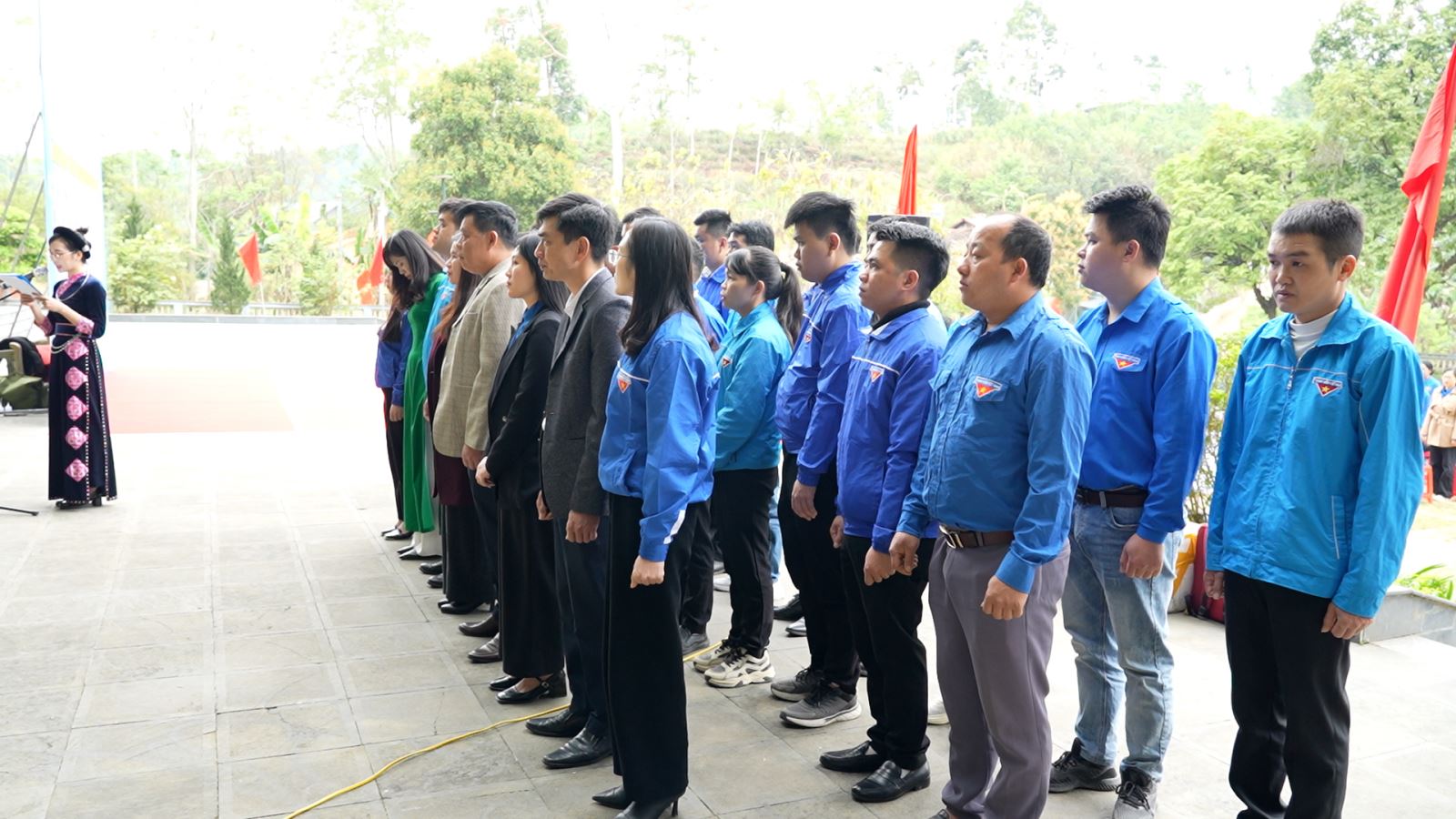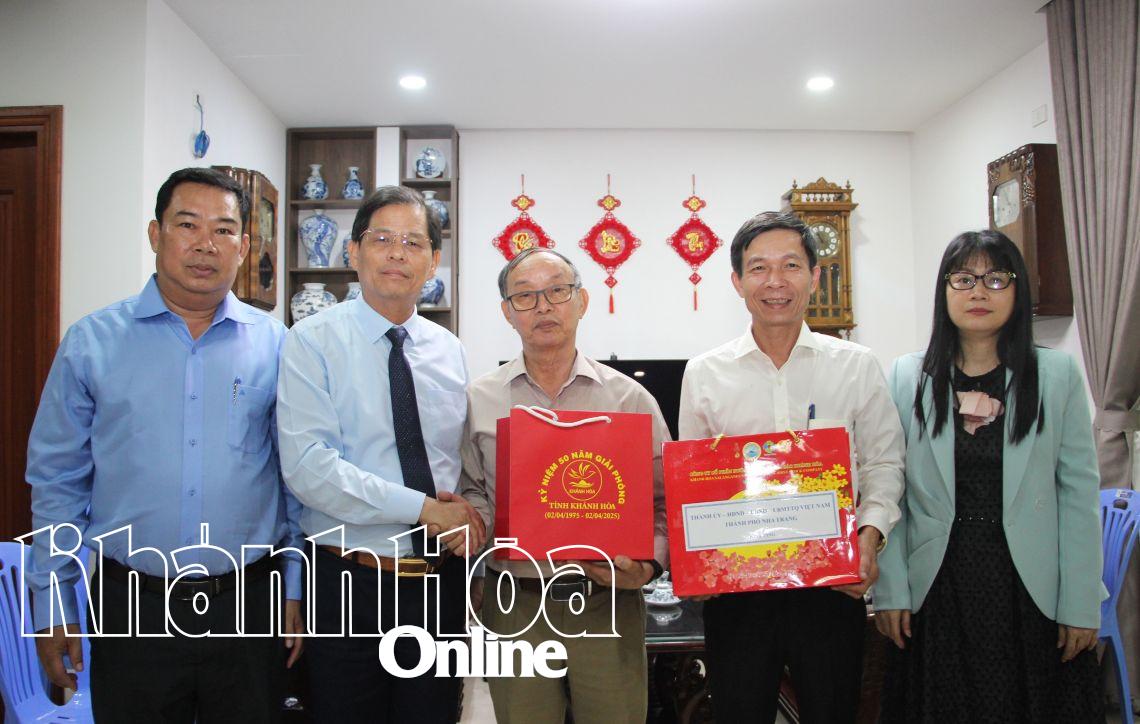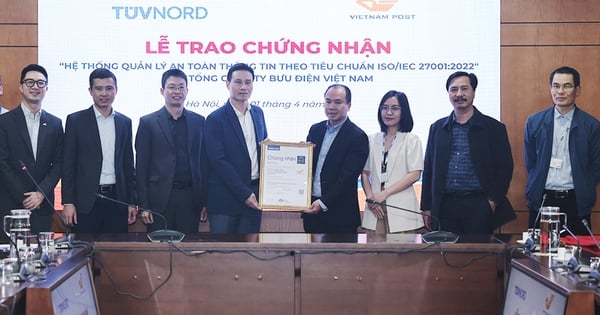After nearly 6 years of implementing the “One Commune One Product” program (OCOP program), the whole province has 138 products certified as OCOP. However, only 2 products are being proposed to the National OCOP Product Evaluation and Classification Council for evaluation and recognition of 5 stars. Upgrading OCOP products still faces many difficulties.

Ms. Nguyen Thi Hang (red shirt), Director of Khe Sanh Agricultural Cooperative, introduces Khe Sanh coffee products participating in the national 5-star OCOP product evaluation - Photo: BAO BINH
In 2023, the Provincial People's Committee recognized 5 products for their assessment, classification and 4-star OCOP product certification, including: Quang Tri organic rice of Quang Tri Organic Agricultural Products Joint Stock Company, Curminreal turmeric starch of QT Hung Dung One Member Co., Ltd., grapefruit essential oil hair spray of Nhien Thao Quang Tri Co., Ltd., Moc May herbal shampoo extract of Truong Son Medicinal Herbs Cooperative and Mai Thi Thuy green tea extract of Dinh Son Mai Thi Thuy Medicinal Herbs Extract Co., Ltd.
Of the 138 OCOP products in the province, there are 43 4-star products and 95 3-star products. Two products proposed to be evaluated and recognized as 5-star by the National Product Evaluation and Classification Council are Khe Sanh coffee of Khe Sanh Agricultural Cooperative and Solanum procumbens health food of An Xuan Organic Medicine Company Limited.
According to Ms. Nguyen Thi Hang, Director of Khe Sanh Agricultural Cooperative, up to now, the Cooperative has signed contracts with businesses to consume products long-term and stably such as Quang Tri Provincial Post Office, Global Green Technology Development Joint Stock Company (Hanoi), Cat Que Production and Trading Company (Hanoi), Ta Thi Phuong Business Household (Dong Ha), SLOW Laos Company and domestic retail systems and sales agents.
The products have been connected for consumption through the e-commerce trading floor Postmart.vn and the system of points of sale at post offices in 9 districts, towns and cities, participating in fairs, and exhibition points inside and outside the province, meeting the needs of the domestic market and the export market. "Currently, we are preparing a quantity of goods to supply the US market. In addition, some partners are also interested in linking to export the cooperative's coffee products to markets such as France... We hope that the products meet all the conditions and regulations, and are upgraded to the national 5-star OCOP level so that we can expand the export market to other countries".
It can be seen that, besides the achieved results, the implementation of the OCOP program of the province still faces many difficulties and limitations. That is, the number of new participants is still small. Many products have potential and strengths but have not been exploited and registered to participate, there are quite a few subjects and products whose OCOP recognition period has expired and do not participate in the assessment and re-classification.
OCOP products still face difficulties in finding and expanding markets, especially export markets. There are few OCOP products participating in modern retail chains and supermarkets, and there are no products exported to major markets such as Europe, the US, Japan, Korea, etc. In addition, the progress of implementing some goals set for 2025 is still slow, such as the target of the number of OCOP products by 2025 only reaching 48% of the plan.
The province currently has no 5-star OCOP products (target 1-3 products), community tourism products, eco-tourism and tourist attractions (target 1-2 products). The province currently has 21 cooperatives, accounting for 27.6% of OCOP entities (the target is to account for 40% of the number of entities). Localities have not focused on supporting the development of raw material areas, traceability... to ensure quantity and quality to meet market demand.
According to regulations, to upgrade a product from 3 stars to 4 stars, the subject needs to meet standards such as trade promotion associated with geographical indications, chain linkage, market access, origin of product ideas...
These requirements are not easy to implement for the subjects, because most of the province's OCOP products have similar features, are produced on a small scale, and are mainly consumed freely in the market. For OCOP products from 4 stars to 5 stars, it is even more difficult, the products, in addition to meeting 4-star standards, must also have a regular export market.
In fact, most of the province's OCOP product producers are small-scale, so investing in and upgrading production lines and machinery to expand production according to commodity standards requires a relatively large amount of funding. Currently, most cooperatives provide input services for members and organize seasonal production. There are not many cooperatives that organize specialized product production and processing activities.
Therefore, there are no products eligible to participate in the OCOP program. Localities have not focused on supporting the development of raw material areas, traceability... to ensure quantity and quality to meet market demand.
The province's policy is to focus on effectively exploiting the potential and strengths of localities, promoting development, enhancing the value of key products, and characteristics associated with raw material areas. Products granted OCOP certification must affirm their quality, brand and market factors.
Therefore, to support the development and upgrade the star rating of OCOP products, sectors and localities need to promote propaganda and guidance for businesses, cooperatives and people to improve the quality of classified products.
Guide and support product owners to access support policies of the state and the province to promote production development according to the chain, improve product quality, expand production scale according to standards and regulations to meet market demand. Focus on improving product quality, design, packaging, upgrading products from 3 stars to 4 stars, from 4 stars to 5 stars.
Focus on developing OCOP products according to the value chain for industries that the province has strengths and room for development, and at the same time build projects to develop 5-star OCOP products. Focus on developing products with large room but have not yet fully exploited their potential strengths such as medicinal herbs, aquatic products, livestock, community tourism services, eco-tourism and tourist attractions.
Prioritize resources from central and local policies to support OCOP entities in developing and expanding standard raw material areas. Complete processing technology processes, promote trade, and develop brands of key local OCOP products.
Thanh Truc
Source





![[Photo] Third meeting of the Organizing Subcommittee serving the 14th National Party Congress](https://vstatic.vietnam.vn/vietnam/resource/IMAGE/2025/4/2/3f342a185e714df58aad8c0fc08e4af2)

![[Photo] General Secretary To Lam receives Russian Ambassador to Vietnam](https://vstatic.vietnam.vn/vietnam/resource/IMAGE/2025/4/2/b486192404d54058b15165174ea36c4e)























![[Photo] Relatives of victims of the earthquake in Myanmar were moved and grateful to the rescue team of the Vietnamese Ministry of National Defense.](https://vstatic.vietnam.vn/vietnam/resource/IMAGE/2025/4/2/aa6a37e9b59543dfb0ddc7f44162a7a7)

































































Comment (0)